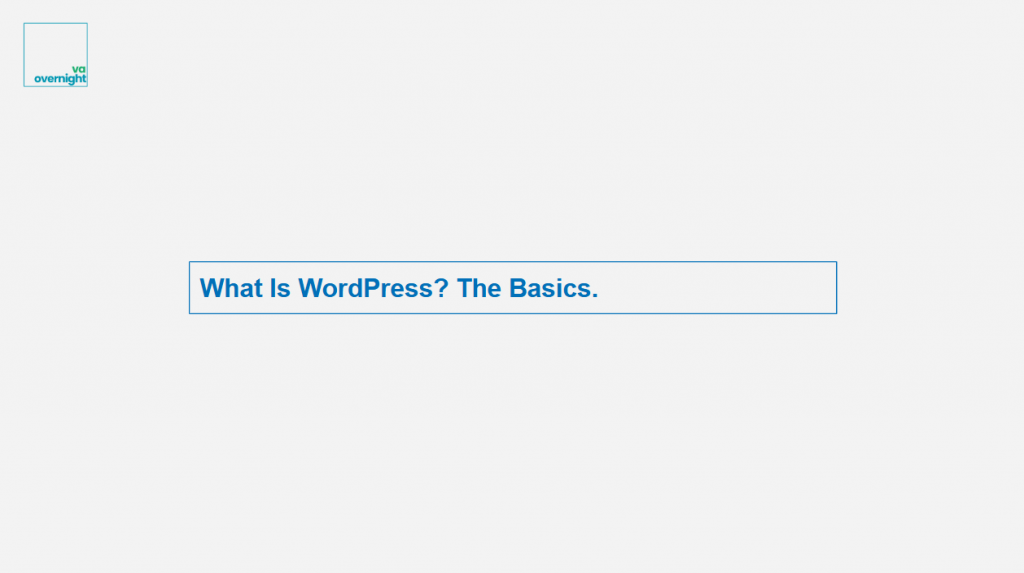Introduction
Today, for most people, having a website is pretty normal, even for individuals. And for businesses a good-looking website that produces leads and gets the business owner new customers is mandatory.
Sure, for many businesses, a Facebook page will be good to go. But if you are a real, serious business, you want to have a professional-looking and performing website.
And at that point, especially when it comes to small businesses, WordPress comes into place. WordPress is a CMS, a content management system that can professionally publish content. The good thing is that as a user, you don’t need to be very tech-savvy.
After you have set up the website with WordPress, and installed all necessary plugins, you’re good to go. The dashboard of WordPress is self-explanatory and when you are experienced with software in general, even if it’s only Microsoft Word or a similar product, using WordPress won’t be a problem for you.
What is WordPress?
WordPress was launched in 2003 as an open-source content management system (CMS) for creating, managing, and publishing content on the web.
From an initially simple blogging tool, it has meanwhile evolved into an adult eco-system that covers many features like online shops (WooCommerce), corporate websites, and many more.
The market share of WordPress in the web space is around 40%. So, nearly half of all websites were built by using WordPress. Impressive, right?
One reason why many individuals and businesses tend to use free WordPress is the flexibility and simplicity of this CMS. Don’t get me wrong, there are some downsides. One of them is that WordPress websites need regular maintenance. Contrary to a basic, static, HTML website, which you deploy on your server and that’s it, a CMS needs maintenance for backup, update, and security reasons. But, those can be done very quickly and easily.
WordPress.com vs. WordPress.org
Both platforms have the same core software, but WordPress.com is a hosted platform. By using it, WordPress takes care of technical details like hosting, security, and backups. At first sight, this might be great for a hassle-free WordPress website, but there are some limitations with customization and flexibility.
WordPress.org is the self-hosted version of WordPress. With this, you have full control over your website. You can choose your hosting provider. It requires a bit more technical know-how, but you have complete freedom.
Most businesses choose WordPress.org. Full control, freedom to choose or change your providers, and the ability to customize every single aspect of your site are arguments you can’t beat.
The Benefits Of Choosing WordPress
There are many reasons why people choose WordPress as a platform to build and launch their websites. The main benefits are:
- User-Friendly Interface: Building a website with WordPress is straightforward due to its user-friendly interface, with an intuitive dashboard that makes it easy to create and manage content without coding knowledge.
- Endless customization options: You can customize your WordPress website with thousands of themes and plugins. Themes are for design, plugins are for functionality. You can build pretty much anything on the web with both of them. Plus, for many themes, there are pre-built templates for special businesses or use cases you can use. Your website will always look professional, even if you aren’t a designer.
- SEO: Search Engine Optimization is the ability to rank your website on the top of the search engine result page (SERP). This is crucial to save you ad costs because when potential customers search for any of your products or services, with properly done search engine optimization, your website will rank in one of the top positions. This is a first step to collect warm leads, that are searching for your business anyways. WordPress is designed to simplify SEO with plugins like Yoast. In WordPress, you can easily do search engine optimization by managing metadata and creating XML sitemaps. Furthermore, the clean code and responsive design of WordPress make it easy for Google, Bing, and other search engines to crawl them.
Security and Reliability
Besides performance, security is a priority for any website, and WordPress, especially the latest releases built under the enterprise-ready PHP 8 version, has the highest security measures.
Platforms, themes, and plugins are regularly updated to address possible vulnerabilities and improve the performance of your website.
Additional plugins, specially developed for security can enhance the security of your WordPress site. Features like two-factor authentication and automated backups are just some of them.
Community Support
WordPress is an open-source CMS and has a large, active community of developers and contributors. For any possible technical issue or improvement tips, there are plenty of resources available on the web. Forums, online tutorials, WordPress meetups, and conferences like WordCamp (schedules can be found on wordcamp.org), there is a huge community of supporters around the world.
What Can You Build With WordPress?
Besides very specific use cases in the technical field, you can build any type of website. And even if you need some special features you won’t find in WordPress plugins, there are a ton of WordPress developers out there who can build your plugin short term. I have even built a WordPress plugin with ChatGPT. Yes, this is possible!
So, when building a new website, it makes perfect sense to check first, if it can be built using WordPress. This solution is fast, reliable, cheap, and has a proof of concept.
1. Blog
WordPress started as a blogging CMS and is still one of the best tools for blogging today. Easy-to-use editor, dashboard, and a huge variety of beautiful pre-made WordPress themes and templates. With WordPress, you can start your blog within a few hours.
2. Business website
Many businesses and even big corporations, and even government institutions choose WordPress for their website. Flexibility, scalability, and a professional setup and design combined with cost-effective maintenance are a huge advantage. As a business owner, your website can grow with your business.
3. E-commerce shop
With WooCommerce, an online shop plugin with inventory management, payment processing, and shipping processing, your WordPress website can be turned into a complete online store within no time. Managing an online shop with WordPress is easy and self-explanatory. No expensive training is needed.
4. Portfolio website
Creatives like photographers, artists, and designers often use WordPress for their portfolio sites. WordPress offers a wide variety of portfolio themes, so even as a beginner, you can create a visually appealing and modern website to show your projects and attract potential buyers.
5. Membership sites and forums
If you want to build a community besides special platforms like skool, you can use WordPress with plugins like bbPress and BuddyPress, to create membership and forum sites. Many of those forum sites are for very small niches, so sometimes it makes sense to use a privately built site, instead of external platforms. Plus, you don’t have a third-party risk, when you build it on your own and your own server space.
How To Get Started With WordPress In 4 Easy Steps
Below you can find the steps to start with WordPress.
1. Choosing WordPress.org (recommended) or WordPress.com
As mentioned above, you need to decide, if you want simplicity (WordPress.com) for a fixed monthly price, or flexibility (WordPress.org), with 100% control and customization options.
2. Domain and Hosting
With WordPress.com, hosting is included in the monthly price. With WordPress.org, you need a hosting provider (siteground.com highly recommended) for your server space to run the website.
Furthermore, you need a domain name for your website. With business websites, you usually want to choose your company name as a domain name (i.e. “Rick’s Corvette Garage” = business name; rickscorvettegarage.com = domain name). One thing to consider is, that your domain name is relevant for SEO, especially for local SEO. So, you need to choose your domain name wisely. Perhaps, Rick wants not only to do repairs on Vettes but in the future on any Mercedes vehicles as well. In this case, he should register the domain name “ricksgarage.com”, so he can scale or diversify later. If he operates only in one town or region, it could make sense to choose another domain like “ricksgarageohio.com”.
The best and most inexpensive domain registration can be found on namecheap.com. You can also check there if a domain name has already been registered by another person or company.
We don’t recommend to buy any domain name that is registered. They are usually overpriced. But, we recommend staying on .com domains only, due to better SEO performance.
So, in our example, if ricksgarage.com as a domain is already taken, he should try other versions of this name, like ricks-garage.com, visitricksgarage.com, ricksgarage247.com, or something like this.
If you want to do separate domain registration and hosting (which we recommend, due to the annual price increases of most hosting providers when domain and WordPress hosting are combined), you need to link them together via the server DNS. You can find an explanation in this article.
3. Installing WordPress
Most of the hosting providers offer a one-click installation process. If you prefer a manual installation, you can do it, but we recommend using the one-click installation for convenience.
After the installation, you can log into your WordPress dashboard, and continue building and customizing your website.
4. Setting Up Your First Site
First, you want to choose a theme that fits your business or style. There are many thousands of free and premium themes available. Second, you need to install essential plugins for functionality. Contact forms, social media integrations, and many more.
And finally, the site settings, like title, tagline, and permalink structure need to be set up.
Common WordPress Terms And Their Meaning:
Theme: A template and stylesheets for the design and appearance of a WordPress site.
Plugin: Software that adds functionality to your WordPress site.
Widget: A small block that you can place in various positions on your site (i.e. sidebar, footer).
CMS: Content Management System. A software to create, manage, and publish content on the web. WordPress is a CMS, but there are many others like Drupal, Typo3, Contao, Joomla, etc.
Permalink: A permanent URL (Domain) for your individual blog posts, pages, and other content.
Conclusion
WordPress is an open-source content management system and is free to use. It is powerful and versatile and anyone can use WordPress to make a website. Building a website with WordPress is an easy way even if you don’t have technical or coding skills.
By using WordPress, you have flexibility and scalability in website creation for a variety of use cases. And if you need new features on your website, you can easily find an appropriate plugin and can install it within a minute. And if you have some exotic feature, you’re missing on your website, you can always find a PHP coder who can build a custom plugin for you. As I mentioned, even ChatGPT built one for me.
With Matt Mullenweg, who was the inventor of WordPress, and many thousands of people in the WordPress community, the WordPress platform as a completely free open-source software won’t go anywhere. Every day, new WordPress websites fuel the web and more than 40% of worldwide websites use WordPress to power them.
If you don’t want to install your WordPress by yourself or want help with it, feel free to contact us.

